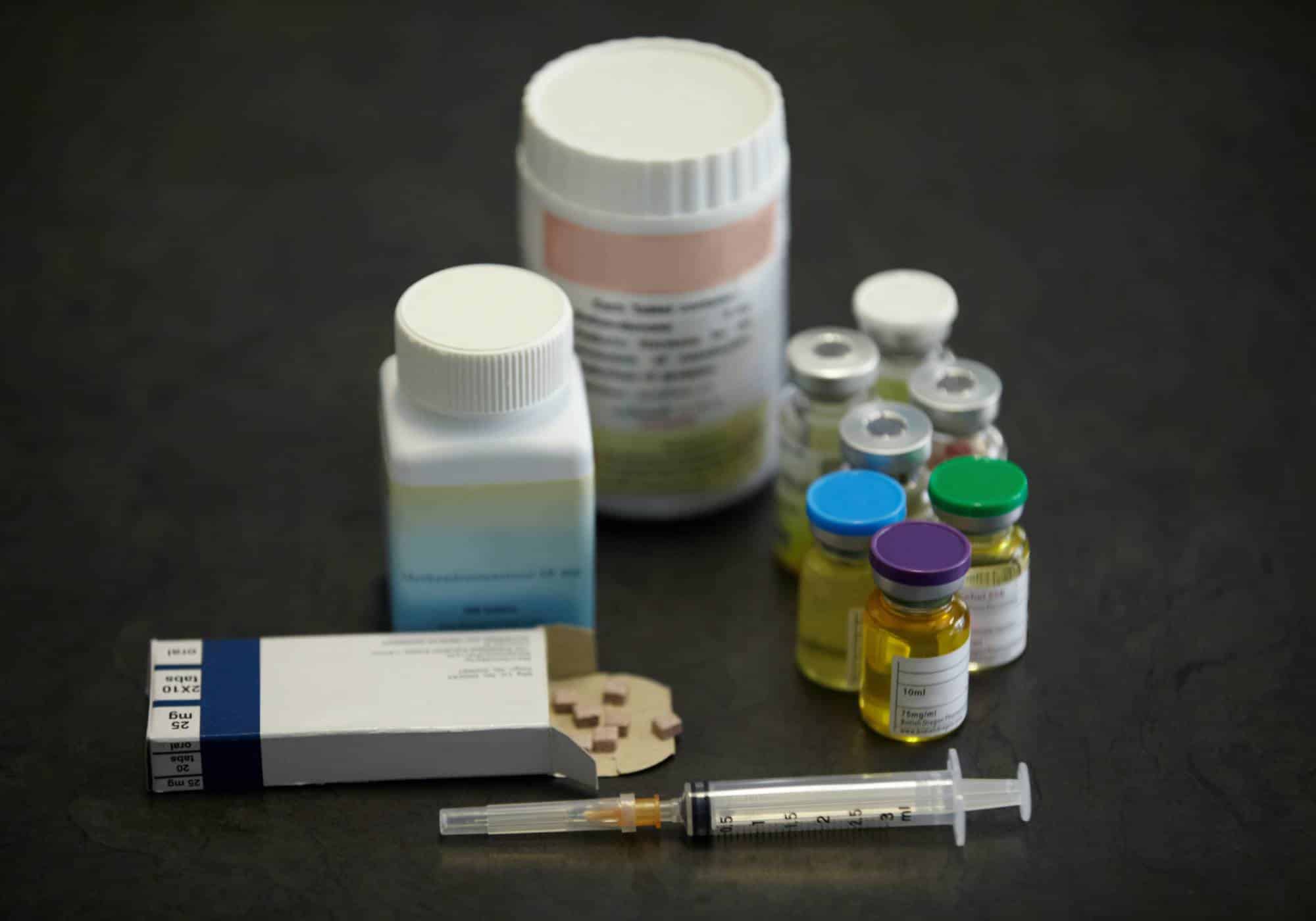What is Effexor?
Effexor, known generically as venlafaxine, is a type of antidepressant categorized as a serotonin-norepinephrine reuptake inhibitor (SNRI). This medication functions by adjusting the levels of serotonin and norepinephrine in the brain—neurotransmitters that influence mood, anxiety, focus, and various physiological processes. While these adjustments can enhance overall well-being, it raises questions about the potential for addiction, a concern common to many prescription drugs.
Slang for Effexor
Effexor, like many antidepressants, is sometimes referred to by various street names or slang terms, including:
- Happy pills
- Bottled smiles
- Miracle drug
- Wonder drug
Is Effexor Addictive?
Effexor is not considered addictive in the traditional sense where individuals might engage in extreme behaviors such as theft or neglecting family duties to obtain the drug. However, it can cause what some describe as an amphetamine-like high, though such effects are not well-documented. Effexor is particularly known for causing severe symptoms of “antidepressant discontinuation syndrome” if doses are missed or the medication is stopped suddenly. Symptoms can include vertigo, nausea, flu-like symptoms, and sensory disruptions. While technically a non-addictive drug, psychological dependency can develop, and physical dependence is evident from the severe withdrawal symptoms experienced by some users.
Uses of Effexor
Effexor, known generically as venlafaxine, is a medication primarily used to manage various mental health conditions. Its applications include treating:
- Depression
- General anxiety disorder
- Social phobia
- Panic attacks
- Symptoms associated with menopause in women
- Fibromyalgia
- Nerve pain
How Common is Effexor Abuse and Addiction?
Effexor is generally not considered addictive in a traditional sense, but it can lead to psychological dependence, particularly in individuals who combine it with other substances to enhance their mood. This is more common among individuals with co-occurring disorders such as anxiety or depression, who may misuse the medication in an attempt to feel significantly better than they would with their prescribed dose.
Abuse of Effexor typically involves taking larger or more frequent doses than prescribed, acquiring the medication through non-medical sources such as friends, dealers, or unauthorized online pharmacies.
While Effexor does not produce a euphoric high like some other drugs, individuals may still misuse it, either alone or in combination with other substances, to manage emotional distress or challenging life events such as job loss, bereavement, or relationship breakdowns.
Data on the Effexor abuse is limited, but indications suggest that those with pre-existing mental health or severe substance abuse issues are at a higher risk of misusing this medication.
How is Effexor Abused?
Though not commonly abused, Effexor can be misused by individuals seeking an amphetamine-like high, typically by taking excessively high oral doses—reports suggest amounts as high as 4,050 mg. While most abuse involves oral consumption, there are isolated reports in online forums of people crushing pills to snort or even inject Effexor, though such practices are rare and highly dangerous.

Side Effects of Effexor
Common side effects of Effexor include:
- Dizziness
- Drowsiness
- Anxiety
- Insomnia
- Nausea, vomiting, or diarrhea
- Changes in weight or appetite
- Dry mouth
- Increased sweating
- Decreased libido
Serious Side Effects and Medical Concerns
Some side effects of Effexor are serious and may require immediate medical attention, such as:
- Blurred or tunnel vision
- Easy bruising or unusual bleeding
- Blood in stools or vomit
- Difficulty breathing
- Seizures
- Confusion, slurred speech, and severe weakness
- High fever, rapid or irregular heartbeat, muscle stiffness, and tremors, which may indicate a potential life-threatening condition like serotonin syndrome
Risks of Serotonin Syndrome
Effexor can cause serotonin syndrome, particularly when used with other drugs that increase serotonin levels. This serious medical condition can manifest as:
- Agitation or restlessness
- Muscle twitching
- Shivering
- Fast heartbeat
- Hallucinations
- Fever and excessive sweating
- Coordination problems
Prompt medical intervention is crucial when any signs of serotonin syndrome are observed to prevent complications.
Signs and Symptoms of Effexor Addiction
Effexor is an antidepressant not typically associated with recreational use as it does not produce a traditional “high.” However, it can still be misused by individuals trying to self-medicate or amplify the medication’s effects. Unlike substances such as heroin or methamphetamine, Effexor addiction is primarily psychological, not physical. Individuals with mental health issues such as depression or anxiety might misuse Effexor by increasing dosages, altering the method of ingestion, or combining it with alcohol to mitigate their symptoms.
Misusing Effexor can lead to severe side effects and increase the risk of overdose. As dependence grows, changes in behavior and personality may become apparent, signaling a deepening problem. Recognizing these signs is crucial for addressing the issue and seeking help.
Signs of Effexor Addiction Include:
- Experiencing memory issues and confusion
- Undergoing severe mood swings and depression
- Having anxiety and panic attacks
- Suffering from hallucinations and vivid dreams
- Displaying aggressive behavior or having suicidal thoughts
- Taking Effexor in higher doses than prescribed
- Deceptively obtaining prescriptions, including “doctor shopping”
- Facing withdrawal symptoms when attempting to stop usage
- Persisting in Effexor use despite negative consequences
- Losing interest in previously enjoyed activities
- Withdrawing from social interactions and relationships
- Enduring significant financial, physical, and emotional difficulties due to misuse
- Developing cravings for Effexor and feeling dysfunctional without it
If any of these signs are observed, it’s important to consider intensive outpatient programs (IOP) or partial hospitalization programs (PHP) as viable treatment options to aid recovery.

Effexor Withdrawal Symptoms and Detox Process
Symptoms of Effexor Withdrawal
Effexor withdrawal can be intense for those who cease using it suddenly after regular use. Common symptoms include:
- Tremors and headaches
- Fatigue and insomnia
- Dizziness and agitation
- Anxiety and vertigo
- “Brain shivers” or electric shock sensations
- Nausea and deep depression
Attempting to detox from Effexor alone at home is strongly discouraged due to the severity of these symptoms. Professional assistance increases the likelihood of a successful and sustained recovery.
Effexor Detox
A medical detox program provides essential support during the withdrawal from Effexor, offering 24/7 medical supervision and intervention. Treatment specialists may use medication to alleviate withdrawal discomfort, while clinical staff offer psychological support through individual and group counseling. This approach not only eases the detox process but also significantly lowers the risk of relapse, which is common among individuals trying to escape the discomfort of withdrawal on their own.
Effexor Withdrawal Timeline
The timeline for Effexor withdrawal can vary greatly depending on several factors such as the individual’s age, body composition, hydration levels, frequency and dosage of Effexor use, and concurrent abuse of other substances:
- 1-3 Days: Initial mild symptoms of withdrawal may begin.
- 4-5 Days: Symptoms often intensify, including nausea, shakiness, and insomnia.
- 1-3 Weeks: Symptoms typically decrease over this period and generally subside three weeks after cessation. However, some may experience mild symptoms for several months.
Understanding these aspects can help manage expectations and prepare for a successful detox and recovery process.
Effexor Addiction Treatment in Atlanta, GA
Long-term use of venlafaxine, or Effexor, may lead to dependence, which can escalate without proper medical oversight. While dependence is common among long-term medication users, psychological addiction presents a unique challenge. At our Atlanta substance abuse treatment center, we provide comprehensive care for individuals at all stages of addiction.
Our drug rehab specializes in both illicit and prescription drug addiction treatment, employing a range of therapeutic programs to help clients uncover the root causes of their substance use and develop the necessary skills for sustained sobriety. Our experienced professionals tailor addiction treatment plans to each individual’s needs, ensuring a supportive and effective path to recovery. Contact Hope Harbor Wellness today at 678-605-9725 or fill out our contact form to being your Effexor addiction treatment in Atlanta, GA.












